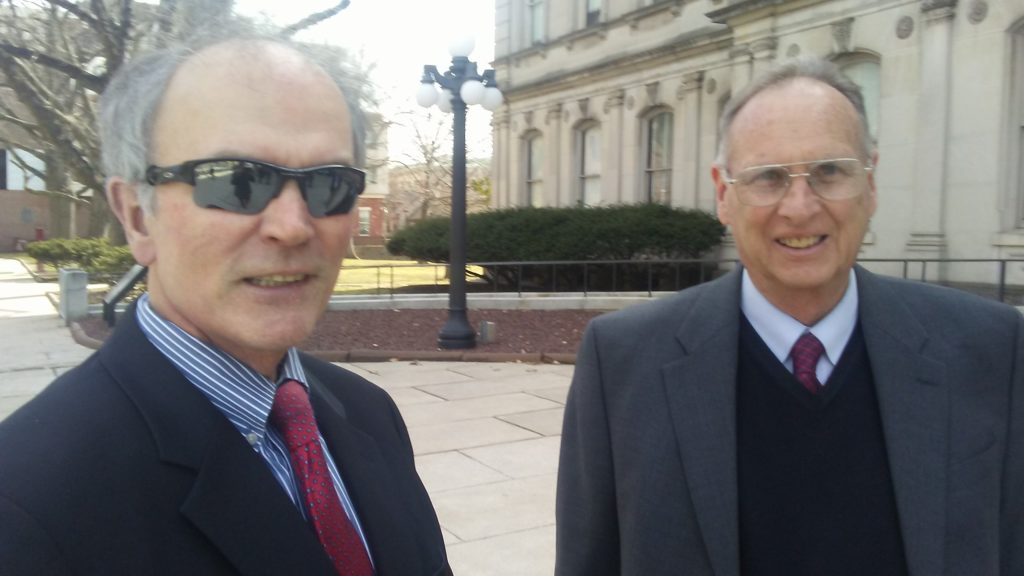Pending Disclosure Bill For Independent Special Interest Groups Faces Major Test In Coming Days

Despite popular opinion, the recent growth in independent, outside groups did not start with the 2010 U.S. Supreme Court decision in Citizens United.
True, the decision facilitated the exponential rise in spending by independent groups. But the real culprit was the 2002 Bipartisan Campaign Reform Act (BCRA), better known as McCain/Feingold.
McCain/Feingold set the stage for what is becoming a transformation in America’s electoral system, from one predicated upon traditional, accountable political parties and candidates to one increasingly reliant on independent, outside groups.
Further, this rearrangement of electoral players has not been limited to national politics but has flowed down to the states and even local governments.
The main thrust of McCain/Feingold was to end unlimited “soft” money donations to national political parties, leaving them solely dependent on “hard” money contributions subject to strict limits.
Following the enactment of the reform bill, individuals could donate just $25,000 to national parties. Currently, the maximum an individual can give to the general fund of a national political committee is $35,500 per year.
As predicted in a 2003 article I wrote in New Jersey Reporter Magazine, the result of this reform was to redirect soft money dollars away from accountable political parties and toward unregulated independent groups.
Between 2002, when BCRA was enacted, and 2008, two years prior to Citizens United, there was more than a 1000 percent growth independent group spending.
In other words, McCain/Feingold spawned the current era of independent group dominance.
Besides serving as a catalyst for the increase in spending by independent factions, the law resulted in less transparency. Prior to McCain/Feingold, the public knew the identity of soft money donors who gave to the national political parties. This is not true of many soft money donors to independent groups.
While it took a little time, the expanding power and influence of independent groups eventually filtered down to the states, including New Jersey.
For example, there has been an increase in electoral spending in New Jersey of over 11,000 percent between 2005–2017 by independent groups. Meanwhile, spending by political party committees in New Jersey, including state, county, and municipal committees, has moved significantly in the other direction.
Overall, during the gubernatorial and legislative elections of 2013 and 2017, and the congressional election of 2018, independent groups spent $163 million attempting to influence those contests.
Compare that to the six state party committees and 42 county party committees which together spent only half as much during those election years.
Without change, the trend toward an electoral system whose elections and issue agenda is increasingly slanted toward dominance by independent groups will increase apace.
And that is not in the public interest.
Fortunately, there is an opportunity to take an important step forward toward resetting the balance between political parties, candidates, and independent groups.
Expected to be voted upon by the Assembly on Monday is A-1524, sponsored by Assemblyman Andrew Zwicker (D-16).
So far, not a single vote has been cast against the bill.
Last Monday, this bill, which would require disclosure by independent groups that engage in electioneering and issue advocacy, was voted out of the Assembly Appropriations Committee by a bipartisan vote of 8-0.
A similar bill, sponsored by State Senator Troy Singleton (D-7), was passed by the Senate by a vote of 31-0.
Certainly, even if this important reform bill becomes law, much more needs to be done to strengthen political parties and candidates in ways that will bring balance back to the process.
Yet, requiring independent groups to fully disclose their campaign contributions and spending just like political parties and candidates have always done is a step in the right direction.
Jeff Brindle is the Executive Director of the New Jersey Election Law Enforcement Commission.
The opinions presented here are his own and not necessarily those of the Commission.









Leave a Reply